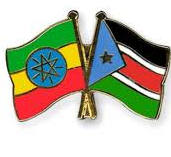
ADDIS ABABA – Ethiopia’s major infrastructure expansion into South Sudan is a strategic step toward deeper regional integration, according to a Foreign Policy Consultant.
Institute of Foreign Affairs (IFA) Trainer and Foreign Policy Consultant, Ambassador Markos Tekle (PhD), stated that Ethiopia’s bold infrastructure push into South Sudan is essential for advancing regional integration beyond simply connecting two neighboring countries.
According to him, Ethiopia’s groundbreaking commitment to building major infrastructure within South Sudan represents a transformative step toward regional integration and stability, weaving a framework of cooperation that promises to uplift communities on both sides of the border.
He further noted that the road construction agreement signed in May 2023 marks a significant step forward in strengthening commercial ties and advancing economic integration between Ethiopia and South Sudan.
Ambassador Markos explained that more than a decade ago, Ethiopia built a major highway from Addis Ababa to Pagak, an Ethiopian border town near South Sudan. However, extending this road into South Sudan’s interior faced delays, significantly slowing cross-border integration.
After years of setbacks, the Ethiopian government, under Prime Minister Abiy Ahmed, took a historic step to bridge this gap. Recognizing the importance of regional connectivity, Ethiopia committed to developing a road network within South Sudan. This new road will link key cities in South Sudan’s Upper Nile region, including major oil-producing areas, with Ethiopia. In return, the South Sudanese government has pledged to repay the project costs upon completion, he added.
Historically, both countries have faced numerous challenges, including regional instability and underdeveloped infrastructure. With a commitment to deepening economic ties, Ethiopia sees infrastructure connectivity as essential to shared prosperity. While political and diplomatic relations are strong, economic and infrastructural connections remain limited and require urgent development, according to Markos.
He pointed out that the Pagak-Faluj-Malakal Road Project aims to connect key areas in Northeast South Sudan and Western Ethiopia. The road will enhance economic integration, reduce inflation in the Greater Upper Nile region, and contribute to peace by fostering economic stability in conflict-prone areas. Similarly, the Akobo-Pibor-Bor Road will link Ethiopia to central South Sudan, improving access to Juba. This route supports the construction of a power transmission line from Ethiopia, which will attract investment and boost industrial productivity in South Sudan.
The Boma-Raad-Kapoeta Road, part of the LAPSSET (Lamu Port South Sudan Ethiopia Transport) Corridor, is designed to connect Ethiopia, South Sudan, and Kenya, promoting broader regional integration.
BY MESERET BEHAILU
THE ETHIOPIAN HERALD SATURDAY 3 MAY 2025





